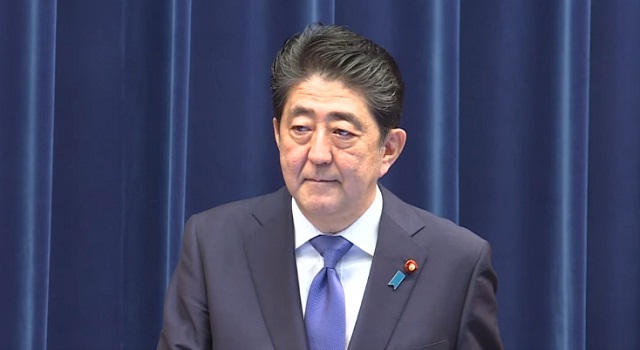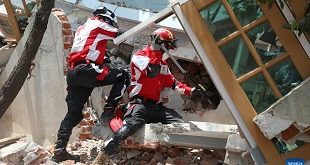
Ramallah, Palestinian Territories | AFP | Japanese Prime Minister Shinzo Abe told Palestinian president Mahmud Abbas Tuesday his country would not move its Israeli embassy to Jerusalem, official media reported, two weeks before the United States completes its controversial relocation.
Meeting in the Palestinian city of Ramallah, Abe told Abbas his country “will not move its embassy to Jerusalem,” a readout on Palestinian official news agency Wafa said.
The United States is due to transfer its embassy from Tel Aviv to Jerusalem on May 14 in a move that sparked anger among Palestinians, who view the eastern part of the city as their capital.
President Donald Trump’s decision broke with decades of international consensus that the future of the disputed city should be negotiated between the parties, but Israel is hopeful other countries will follow the US lead.
Wafa said the Japanese premier reasserted his country’s support for the creation of an independent Palestinian state within the framework of the two-state solution.
It said Abbas thanked Abe for his country’s support for the Palestinian people and told him Palestinians remained “ready to cooperate for the success of any international effort to find a political process,” provided it was based on international law and the creation of a Palestinian state.
The Palestinians are currently refusing to meet Trump’s negotiating team over the embassy row and Abbas has called for other countries to step in to facilitate a new process.
Abe is on a tour of the Middle East and will meet Israeli Prime Minister Benjamin Netanyahu on Wednesday.
His visit also included trips to the United Arab Emirates and Jordan.
Representatives of Japan, Jordan, Israel and the Palestinians held a meeting on the Jordanian banks of the Dead Sea on Sunday evening to discuss their “corridor for peace and prosperity” initiative.
Japan’s Foreign Minister Taro Kono told reporters the initiative — which aims to promote regional cooperation including through the creation of an agro-industrial park in the West Bank — was making progress.
“Our efforts have finally started to bear fruit,” Kono said.
He said the initiative is vital for economic development in the Palestinian territories and the Jordan valley.
 The Independent Uganda: You get the Truth we Pay the Price
The Independent Uganda: You get the Truth we Pay the Price



